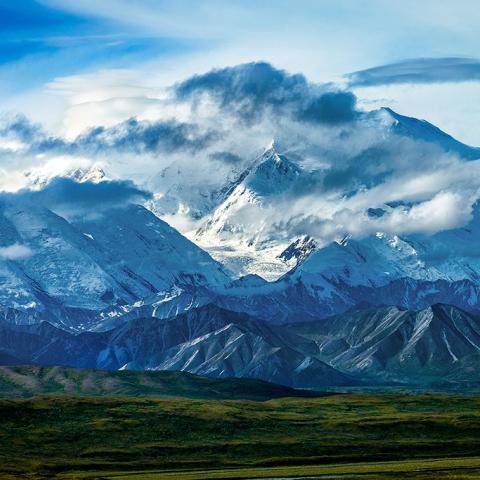
Denali will remain, regardless of the official federally recognized name / Rebecca Latson file
On Trump's first day in office, among the many executive orders he signed, was one that undid an executive order signed by President Obama in 2015 that named the mountain Denali. The order is supposed to go into effect within 30 days.
Changing Denali's offically recognized name back to Mount McKinley has been a somewhat regular talking point for Trump over the years. Trump seems to find common cause with McKinley. “President McKinley championed tariffs to protect U.S. manufacturing, boost domestic production, and drive U.S. industrialization and global reach to new heights,” Trump wrote in the order.
McKinley was an Ohioan who never set foot on Alaska. "Denali” is an Athabascan name that translates to “the high one” or “the great one.”
On Monday, members of the Alaska House of Representatives passed a resolution yesterday urging President Trump to refrain from changing Mount Denali's name to Mount McKinley. The resolution passed comfortably with a bipartisan vote of 28-10.
In a bid at appealing to the president's affinity for dealmaking, some Republican house members proposed adding language to the resolution that would praise Trump for pledging to expand energy development and resource extraction. Republican Rep. George Rauscher proposed an amendment that would have included adding such language, but the amendment was voted down.
Rep. Kevin McCabe (R), who represents the district surrounding Denali, supported the amendment and cast one of the resolution's 10 "no" votes.
"I talked with many people in my district," Rep. McCabe told the Traveler in an email. "Most did not care as they were going to call it what they wanted anyways. The rest were split half and half, but most wanted to know why the Alaska House was focused on such a divisive issue when there were so many bigger things to take care of this session. I think the resolution would have had more impact had we passed the amendment proposed by the House Republicans as it would have provided some positivity along with the request. Absent the unifying amendment I voted against the resolution."
The resolution next moves to the Alaskan State Senate, where it is expected to pass. From there it goes to President Trump and the Department of Interior. The resolution is not binding.




 Support Essential Coverage of Essential Places
Support Essential Coverage of Essential Places






